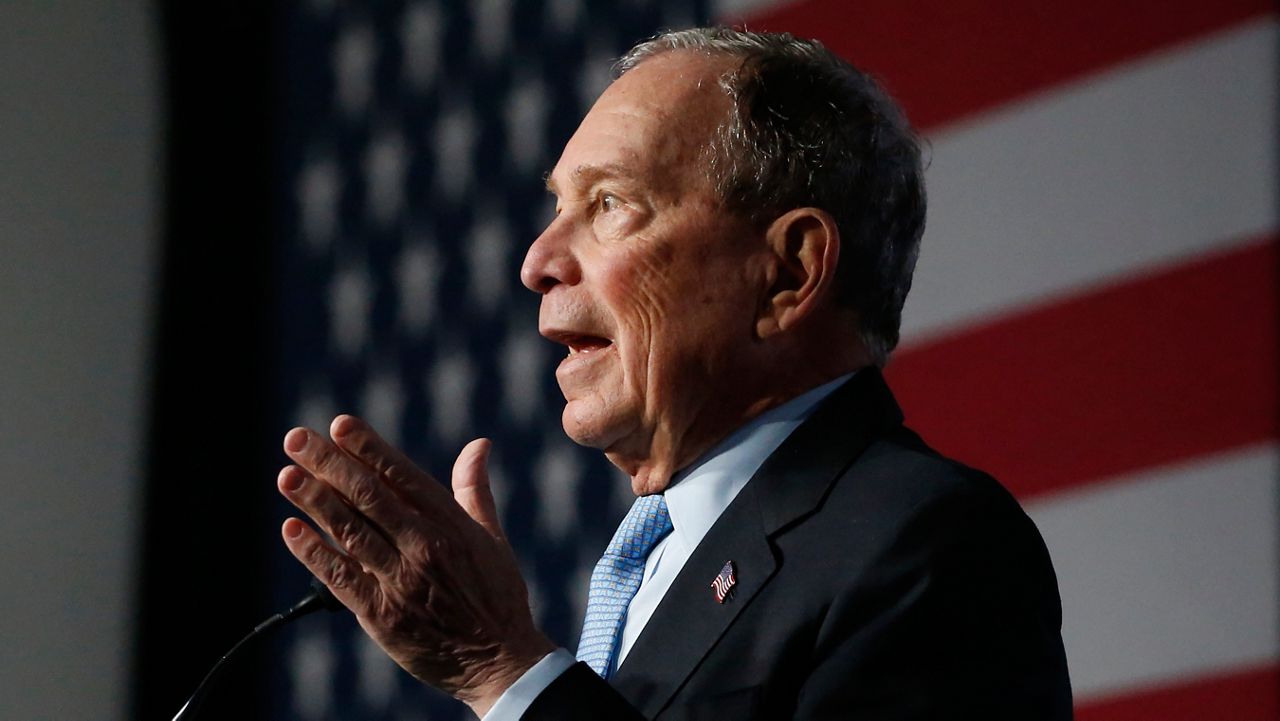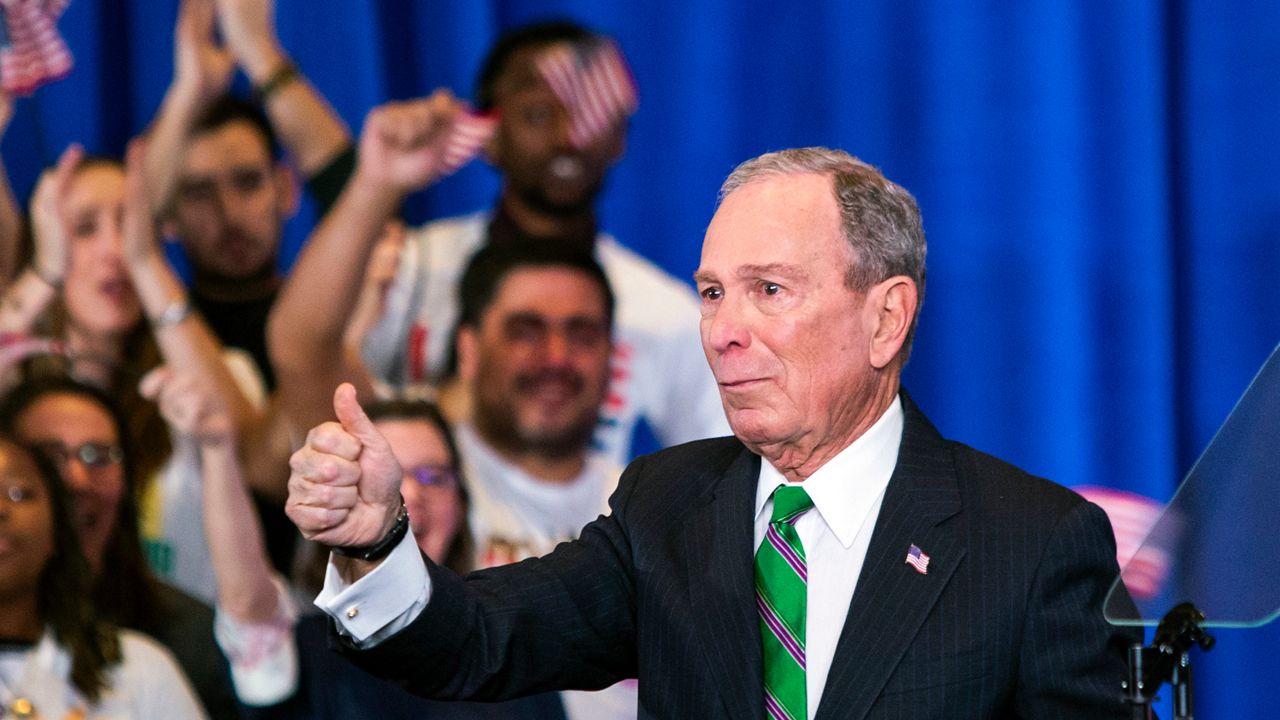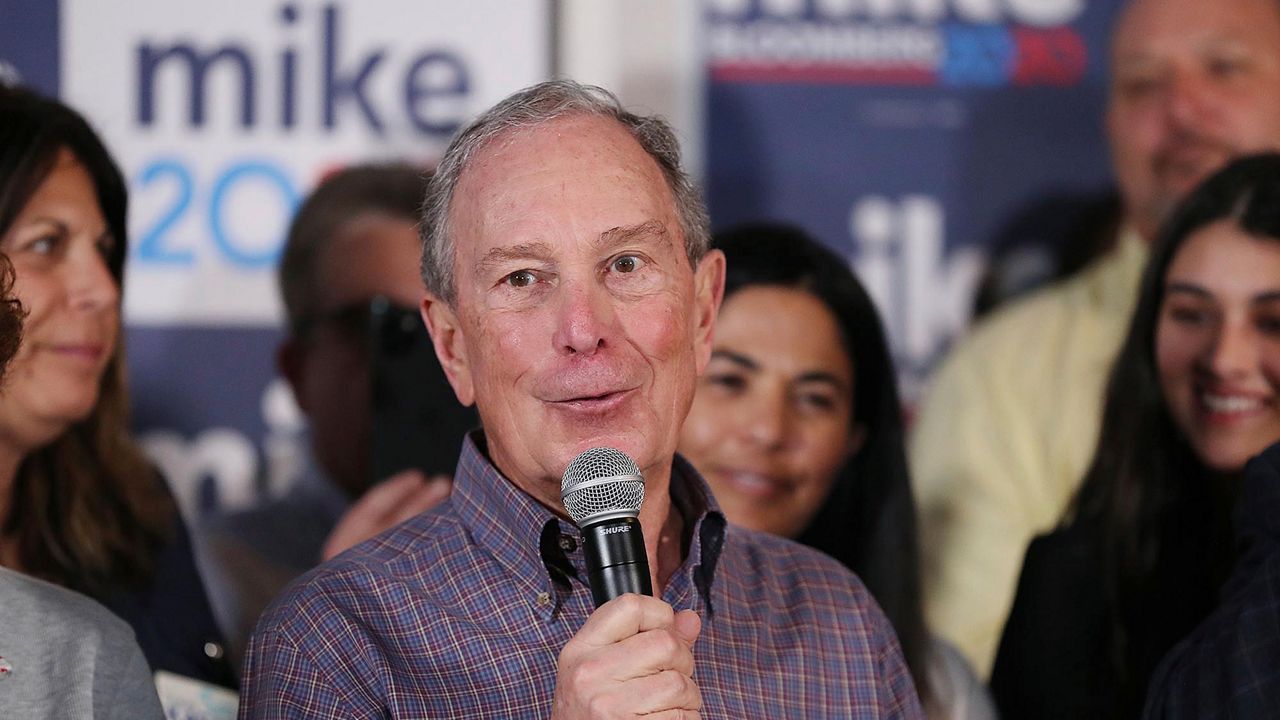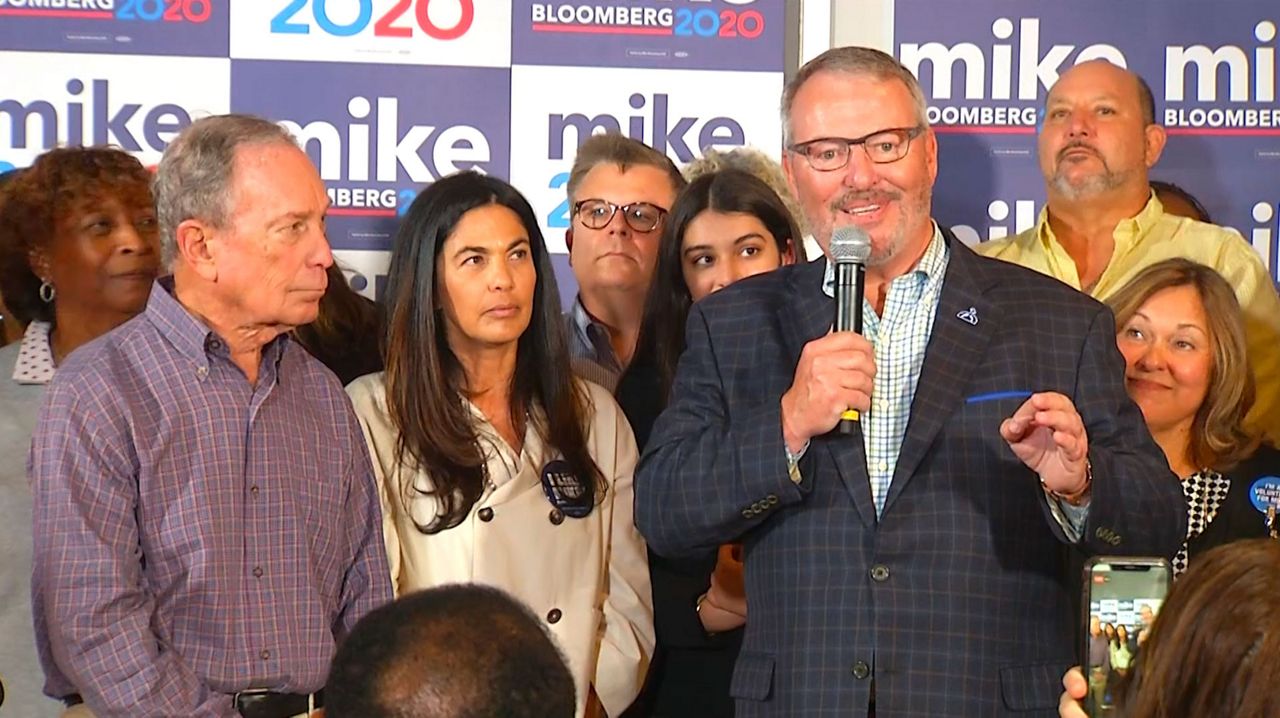Tuesday is the biggest night in the race for president so far this year, with 14 states voting on the same day.
New York won't be one of them, but there will still be plenty of reasons to pay attention as the results come in — including for a certain former billionaire mayor whose name will be on the ballot for the first time.
Here is a breakdown of some questions you may have about Super Tuesday.
A reminder: NY1 and "Inside City Hall" will have live coverage and analysis as the results come in starting at 9 p.m. Tuesday.
Why should New Yorkers care about Super Tuesday when they won't vote?
New Yorkers won't be able to vote in the presidential primary until April, so Super Tuesday can seem inconsequential to the five boroughs. But arguably the biggest reason they should care: former Mayor Michael Bloomberg will be on the presidential ballot for the first time after he skipped the first four nominating contests.

Bloomberg has steadily risen in the polls — to about 15 percent in his latest average of national polls, according to FiveThirtyEight — since he launched his campaign in late November, but Super Tuesday will confirm how much support the mayor has and if he can win the Democratic nomination.
Also of consequence to New Yorkers: Super Tuesday may impact who they can even vote for in April. In the three days leading up to the primaries, billionaire businessman Tom Steyer, South Bend, Indiana, Mayor Pete Buttigieg, and Minnesota Sen. Amy Klobuchar all dropped out, shrinking the field to just a few candidates. By the time Super Tuesday is done, the field could winnow even further if more Democrats — possibly even Bloomberg — determine they no longer have a path to victory.
Why does Super Tuesday matter to a campaign?
Super Tuesday is the second-biggest election night of the year. Democrats are vying for their share of more than 1,300 pledged delegates — about a third of the total up for grabs in 2020 — across 14 states and a diverse electorate. A candidate needs 1,991, a majority, to secure the nomination.

Candidates gobbled up about 1 percent of the total delegates in the first four states, so a big night could go a long way to propelling a candidate to face President Donald Trump in the general election. In short, Super Tuesday will make the race for president much clearer.
What would be considered a 'win' for Bloomberg? Winning multiple states? Getting a good chunk of the delegates?
Democratic presidential primaries are not winner-take-all contests, so pledged delegates are awarded proportionally for candidates who reel in at least 15 percent of the vote in a state. That means Bloomberg in theory could fail to win a single state but still get a large sum of the delegates if he finishes strong in every state.
But in reality, he may not actually "win" Super Tuesday unless he takes a significant chunk of the delegates and states. Vermont Sen. Bernie Sanders and former Vice President Joe Biden lead in an average of polls for most states that will vote, according to FiveThirtyEight. As a result, the mayor could win hundreds of delegates by the end of Super Tuesday but fail to gain on his fiercest competitors.
So what happens if Super Tuesday goes well for Bloomberg? And what happens if it's a clunker?
A good Super Tuesday performance could put Bloomberg in the driver's seat for the Democratic nomination and increase his chances of at least getting at least a plurality of the delegates. Even if Bloomberg fails to gobble up a majority of delegates before the Democratic National Convention in Milwaukee in mid-July, winning the most Super Tuesday delegates could go a long way to preventing Sanders and Biden from winning the race. As a result, it could give Bloomberg a chance to become the Democratic nominee at a contested convention.
On the flip side, weak results Tuesday could narrow the mayor's path to victory. Around 2,500 delegates will still be on the board after Super Tuesday, but Bloomberg may need to win a vast majority of them if he is far back by the time all the races are called.
Furthermore, Super Tuesday can swing a presidential candidate's media coverage — the candidate who wins the most states is generally perceived in the media and by analysts as the frontrunner and gets more coverage, potentially increasing enthusiasm with voters. If Bloomberg has a tepid night, however, that could spark a narrative that he cannot win the election and dampen fervor for him in the next primaries.
And even though the billionaire former mayor won't have to worry about running out of money to fund his campaign — his personal wealth is estimated at over $54 billion — a clunker of a Super Tuesday performance would be a blow. In a little over three months, he has spent more than $400 million of his own money in a nationwide television advertising blitz.
Bloomberg and his camp have said they will stay in the race until he wins or it's evident he can't lock up the nomination. But it doesn't seem like a disastrous Super Tuesday would lead to him bowing out this week; during an interview on "60 Minutes" on Sunday, Bloomberg said he would not drop out if he had a bad night:
Scott Pelley: If you don't finish in the top three on Super Tuesday, is that it for you?
Bloomberg: No, of course not.
------
Looking for an easy way to learn about the issues affecting New York City?
Listen to our "Off Topic/On Politics" podcast: Apple Podcasts | Google Play | Spotify | iHeartRadio | Stitcher | RSS









